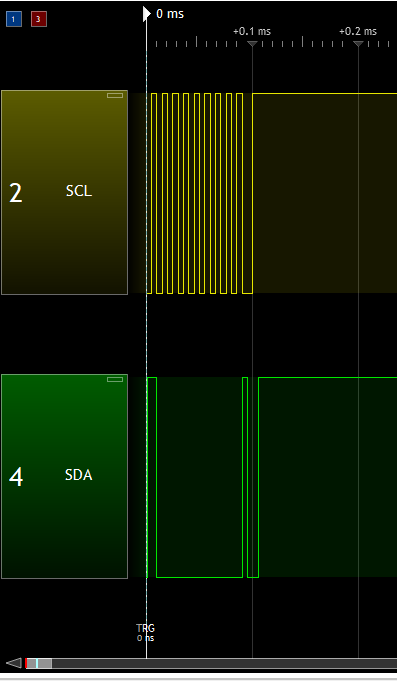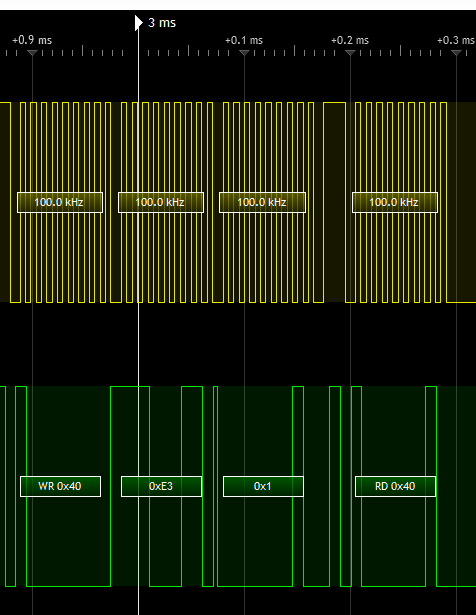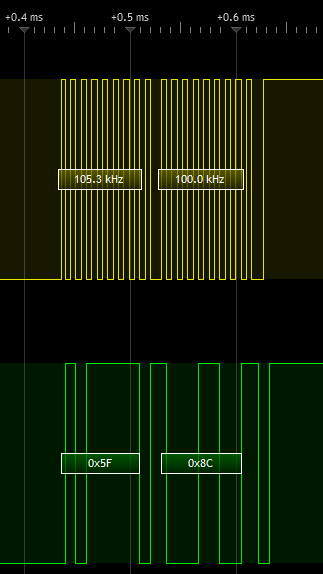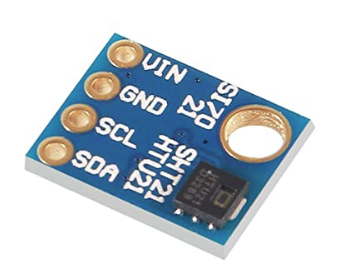I have set up a 2 way channel from an MQTT gateway (into openhab as controller as it happens but not really relevant) and a wireless sensor / actuator. The sensor detects humidity and sends to the gateway, openhab logic picks up the MQTT message and applies some calculations and sends back a fan speed. Most of the time this works fine however I have noticed that sometimes there are NACKs. In particular there are NACKs on the controller to node direction so that the node doesn't get the new fan speed. My question is: how can I handle these NACKs in the gateway? I haven't actually written any code as it all just done for me in the libraries. Here is the gateway code:
// Enable debug prints to serial monitor
#define MY_DEBUG
// Enables and select radio type (if attached)
#define MY_RADIO_RF24
//#define MY_RADIO_RFM69
//#define MY_RADIO_RFM95
#define MY_GATEWAY_MQTT_CLIENT
// Set this node's subscribe and publish topic prefix
#define MY_MQTT_PUBLISH_TOPIC_PREFIX "mygateway1-out"
#define MY_MQTT_SUBSCRIBE_TOPIC_PREFIX "mygateway1-in"
// Set MQTT client id
#define MY_MQTT_CLIENT_ID "mysensors-1"
// W5100 Ethernet module SPI enable (optional if using a shield/module that manages SPI_EN signal)
//#define MY_W5100_SPI_EN 4
// Enable Soft SPI for NRF radio (note different radio wiring is required)
// The W5100 ethernet module seems to have a hard time co-operate with
// radio on the same spi bus.
#if !defined(MY_W5100_SPI_EN) && !defined(ARDUINO_ARCH_SAMD)
#define MY_SOFTSPI
#define MY_SOFT_SPI_SCK_PIN 14
#define MY_SOFT_SPI_MISO_PIN 16
#define MY_SOFT_SPI_MOSI_PIN 15
#endif
// When W5100 is connected we have to move CE/CSN pins for NRF radio
#ifndef MY_RF24_CE_PIN
#define MY_RF24_CE_PIN 5
#endif
#ifndef MY_RF24_CS_PIN
#define MY_RF24_CS_PIN 6
#endif
// Enable these if your MQTT broker requires username/password
#define MY_MQTT_USER "openhabian"
#define MY_MQTT_PASSWORD "X17572gM"
// Enable MY_IP_ADDRESS here if you want a static ip address (no DHCP)
#define MY_IP_ADDRESS 192,168,1,20
// MQTT broker ip address or url. Define one or the other.
//#define MY_CONTROLLER_URL_ADDRESS "m20.cloudmqtt.com"
#define MY_CONTROLLER_IP_ADDRESS 192, 168, 1, 13
// The MQTT broker port to to open
#define MY_PORT 1883
#define MY_MAC_ADDRESS 0xDE, 0xAD, 0xBE, 0xEF, 0xFE, 0xE1
#include <Ethernet.h>
#include <MySensors.h>
void setup()
{
// Setup locally attached sensors
}
void presentation()
{
// Present locally attached sensors here
}
void loop()
{
// Send locally attached sensors data here
}
and here is the node:
// Enable and select radio type attached
#define MY_RADIO_RF24
//#define MY_RADIO_RFM69
//#define MY_RS485
#define CHILD_ID_HUM 0
#define CHILD_ID_TEMP 1
#define CHILD_ID_FAN_SPEED 2
// Define pwm pin
int PWMpin = 6;
//for RS485 connection or if using MQTT gateway then you must manually define the node id before including mysensors.h
#define MY_NODE_ID 100
static bool metric = true;
#include <MySensors.h>
// test every 10s
static const uint64_t UPDATE_INTERVAL = 10000;
//temp humidity module library
#include <SI7021.h>
static SI7021 sensor;
int fan_speed = 0, humidity = 0, humidity_last = 0;
float temperature = 0, temperature_last = 0;
void presentation()
{
Serial.println(F("presentation!"));
// Send the sketch info to the gateway
sendSketchInfo("PWM humidity controlled fan", "1.0");
// Present sensors as children to gateway
present(CHILD_ID_HUM, S_HUM, "Humidity");
present(CHILD_ID_TEMP, S_TEMP, "Temperature");
present(CHILD_ID_FAN_SPEED, S_COVER, "Fan speed");
}
void setup()
{
Serial.println(F("setup!"));
pinMode(PWMpin, OUTPUT);
//TCCR2B = TCCR2B & B11111000 | B00000001; // for PWM frequency of 31372.55 Hz
//TCCR2B = TCCR2B & B11111000 | B00000010; // for PWM frequency of 3921.16 Hz
//TCCR2B = TCCR2B & B11111000 | B00000111; // for PWM frequency of 30.64 Hz
TCCR0B = TCCR0B & B11111000 | B00000010; // for PWM frequency of 7812.50 Hz
analogWrite(PWMpin, fan_speed);
while (not sensor.begin())
{
Serial.println(F("Sensor not detected!"));
delay(1000);
}
delay(1000);
}
void loop()
{
// Read temperature & humidity from sensor.
temperature = float( sensor.getCelsiusHundredths() ) / 100.0;
humidity = float( sensor.getHumidityBasisPoints() ) / 100.0;
#ifdef MY_DEBUG
Serial.print(F("Temp "));
Serial.print(temperature);
Serial.print('C');
Serial.print(F("\tHum "));
Serial.print(humidity);
Serial.print(F("\tSpeed "));
Serial.println(fan_speed);
#endif
//if humidity has changed significantly since last report then send to controller
if ((abs(humidity - humidity_last) > 5 ) or (abs(temperature - temperature_last) > 0.5))
{
static MyMessage msgHum(CHILD_ID_HUM, V_HUM );
send(msgHum.set(humidity, 2));
static MyMessage msgTemp(CHILD_ID_TEMP, V_TEMP);
send(msgTemp.set(temperature, 2));
static MyMessage msgSpeed(CHILD_ID_FAN_SPEED, V_PERCENTAGE);
send(msgSpeed.set(fan_speed, 2));
humidity_last = humidity;
temperature_last = temperature;
}
// wait until next update
wait(UPDATE_INTERVAL);
}
// handle inbound new fan speed message from controller
void receive(const MyMessage &message)
{
String PayLoad = message.getString();
#ifdef MY_DEBUG
Serial.print("Value received: ");
Serial.println(PayLoad);
#endif
fan_speed = PayLoad.toInt();
analogWrite(PWMpin, fan_speed);
#ifdef MY_DEBUG
Serial.print(F("\tSpeed "));
Serial.println(fan_speed);
#endif
//report back fan speed when changed
static MyMessage msgSpeed(CHILD_ID_FAN_SPEED, V_PERCENTAGE);
send(msgSpeed.set(fan_speed, 2));
}
So my thinking is that the node has periods where it is doing something else like reading the sensor and when it is executing that code it will be deaf to inbound traffic and hence the NACKs.
Any help on how to program the logic IN THE GATEWAY to handle this would be gratefully received. I could, of course handle this in openhab but this seems should be something that is handled at the transport layer I think.
Thank you




